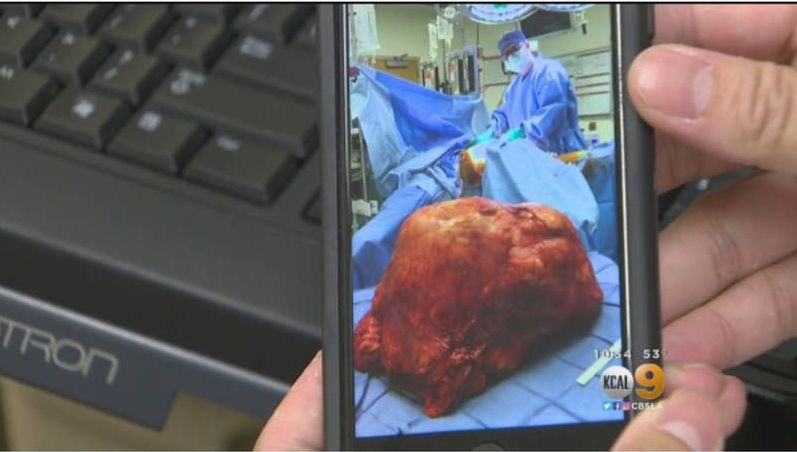For years, Hector Hernandez was subjected to jokes about the appearance of his midriff area. His friends would tease him about his big "beer belly," even though he wasn't much of drinker.
After a while, Hernandez started to notice that his protruding stomach continued to grow while the rest of his body, including his legs and arms, got thinner.
"My arms were way smaller than they are now. I used to have have hanging skin," he told CBS Los Angeles.
This past June, the Downey, California man finally had enough and decided to get a doctor involved.
A CT scan then revealed something Hernandez never saw coming - a massive tumor known as retroperitoneal liposarcoma was growing in his stomach.
"They're the largest tumors, the largest cancers we know about in the human body," explained Dr. William Tseng, a surgical oncologist at USC's Keck School of Medicine.
This is a type of cancer that starts in the fat cells at the back of the abdomen, then as they grow, they push the organs to the side.
These tumors typically about 20 to 30 pounds in size, but Hernandez's had already grown to a whopping 77 pounds.
He had to undergo a risky six-hour surgery to have it removed, and it turned out to be successful.
When Hernandez was admitted to the hospital he weighed in at more than 300 pounds, but after about a week of recovery, he was over 100 pounds lighter.
"It was very gratifying to see his before and after photos and see him back at the size he was four or five years ago," Tseng said in a press release. "To be able to take it out safely and see him enjoy a good quality of life after, that's a big thing."

Luckily for Hernandez, these types of tumors have a low chance of spreading, so he won't need chemotherapy or radiation. Still, doctors will continue to regularly monitor his health as there's a chance that the cancerous growth could come back.
Medical professionals are still unable to determine what causes retroperitoneal liposarcoma, and because it is a very rare condition, it may take a while before they are able to figure it out.
For now, they're urging people to be more in tune with their bodies and report any abnormal changes to their doctors.



